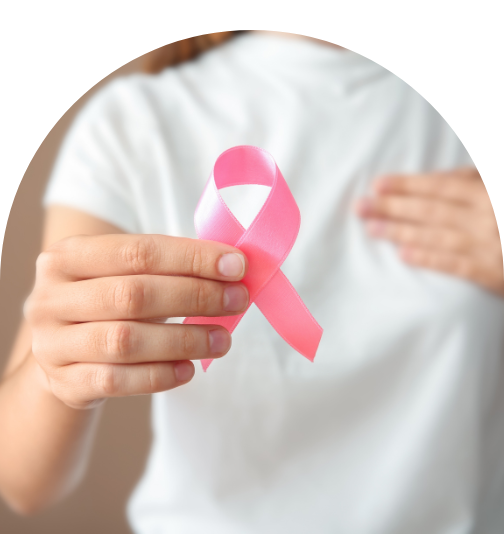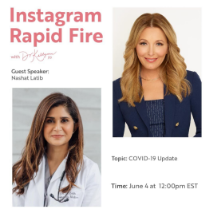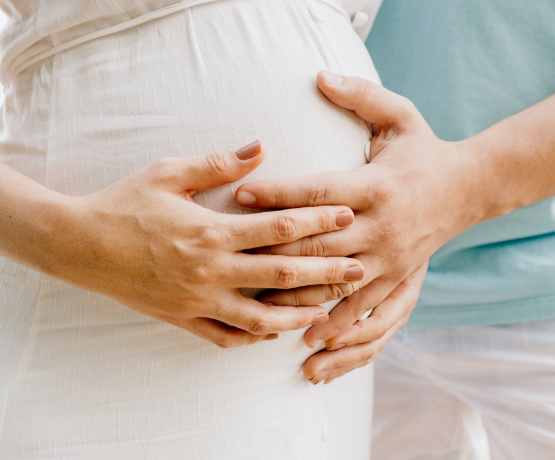October is Breast Cancer Awareness Month
This October, during Breast Cancer Awareness Month, I find that it’s important to come together as a community and offer guidance to those who may be facing the dual challenge of breast cancer and fertility concerns.
Breast cancer is one of the most difficult diagnoses, affecting not only a woman’s physical health but also her emotional well-being and fertility aspirations. It’s a journey fraught with uncertainties, but with the right information and support, it’s a journey that can be navigated successfully.
Understanding the Intersection of Breast Cancer and Fertility
Breast cancer and fertility might seem unrelated, but they intersect in significant ways. Many breast cancer treatments, such as chemotherapy and hormonal therapies, can have a direct impact on a woman’s reproductive health. Here are some key points to consider:
- Chemotherapy and Ovarian Function: Chemotherapy, while highly effective at targeting cancer cells, can also affect a woman’s ovarian function. This may lead to temporary or permanent infertility.
- Hormonal Therapies: Some breast cancer treatments, including hormonal therapies, can alter hormone levels in the body, potentially affecting fertility and menstrual cycles.
- Fertility Preservation: For women who wish to preserve their fertility before starting breast cancer treatment, options like egg freezing or embryo preservation can be considered.
The Importance of Open Communication
If you’re facing breast cancer and fertility concerns, communication is paramount. Discuss your fertility goals and concerns openly with your oncologist and medical team. They can provide insights into how your specific treatment plan may impact your fertility and offer potential solutions.
Integrating Functional Medicine Principles
As a Board Certified Physician and Functional Medicine practitioner, I believe in a holistic approach to healthcare. While navigating breast cancer and fertility challenges, incorporating functional medicine principles can be beneficial:
- Nutritional Support: Proper nutrition can play a vital role in supporting your overall health during cancer treatment and can positively influence your fertility.
- Stress Management: Managing stress is essential. Techniques like mindfulness, meditation, and yoga can help reduce stress levels, which can, in turn, benefit your fertility.
- Hormone Balancing: Functional medicine offers options for hormone balancing that may be particularly helpful when dealing with hormonal changes due to breast cancer treatments.
At Reimagined Health, Dr. Christina and I are committed to providing comprehensive care that addresses more than just fertility concerns. For women who have overcome breast cancer and now wish to pursue the journey of getting pregnant, our approach respects conventional medicine with functional and holistic strategies to get to the root cause of your health issues. If you are looking for functional medicine support in your journey to pregnancy click here to watch our on-demand webinar, where we reveal the 4R Fertility Formula™ we use to work with our clients If what we share sounds good, we invite you to apply for a spot in our high-touch, individualized group program that has over an 80% success rate in helping couples conceive naturally.
What women can do to enhance their chances of conceiving after breast cancer
Consult with Your Oncologist
Before planning for pregnancy, it’s crucial to have an open conversation with your oncologist. They can provide insights into your specific case, including the type of breast cancer, stage, and the treatments you’ve received. Understanding how these factors may impact your fertility and overall health is essential.
Fertility Assessment
Consider a thorough fertility assessment. This typically includes evaluating ovarian reserve, hormonal levels, and the condition of your reproductive organs. This assessment will help determine your current fertility status and guide any necessary interventions. Our Fertility Kickstart Program recommends and helps you review your lab results so you can own your health journey.
Optimize Nutrition
Nutrition plays a fundamental role in overall health and fertility. From a functional medicine perspective, food is medicine! Aim for a balanced diet rich in whole foods, including plenty of fruits, vegetables, lean proteins, and healthy fats. Also, discuss with your healthcare provider whether specific supplements, such as folate, vitamin D, and omega-3 fatty acids, are appropriate for your individual needs. Finally, taking on an anti-inflammatory diet can be extremely beneficial, as chronic inflammation can negatively impact fertility. This includes reducing processed foods, red meat, processed meats, sugary foods, and gluten.
Hormone Balance
Hormone balance is crucial for fertility. Functional medicine offers strategies to support hormone equilibrium with a focus on stress management and adrenal support. First, chronic stress can disrupt hormone balance. Incorporate stress-reduction techniques such as mindfulness, yoga, or meditation into your daily routine. Secondly, addressing adrenal health is essential, as the adrenal glands play a role in hormone production. Adequate sleep, stress management, and adaptogenic herbs may be beneficial.
Detoxification
Support your body’s natural detoxification processes by focusing on your liver health. The liver plays a key role in metabolizing hormones and toxins. A functional medicine approach may involve supporting liver health through diet and supplements. Environmental Toxins also wreak havoc on the body. We encourage you to minimize exposure to environmental toxins. This includes choosing organic foods free of pesticides, using natural household products, and reducing exposure to harmful chemicals.
Fertility Preservation
If cancer treatments have affected your fertility, discuss fertility preservation options with a reproductive specialist. These options may include freezing your eggs or freezing embryos for future use.
Emotional Support
Emotional well-being is integral to fertility so individual therapy and group sessions can play a vital role. Consider therapy or counseling to address any emotional challenges stemming from your cancer journey. Alternatively, joining support groups for cancer survivors can provide a sense of community and understanding.
Collaborate with a Functional Medicine Practitioner
Consider working with a Functional Medicine practitioner who specializes in fertility. They can develop a personalized plan that addresses your specific health needs and fertility goals. Functional medicine focuses on optimizing overall wellness, which can positively impact fertility.
Final Thoughts
Remember, every woman’s journey is unique. It’s important to approach pregnancy planning after breast cancer with a comprehensive, individualized strategy that prioritizes both your health and your fertility goals. Collaborating with a healthcare team that includes oncologists, fertility specialists, and functional medicine practitioners can provide you with the best guidance and support on your path to conception.
This Breast Cancer Awareness Month, we encourage you to reach out for support. Whether you’re exploring fertility preservation options, seeking guidance on managing side effects of treatment, or simply in need of emotional support, we’re here for you.
Remember, you are not alone on this journey. By arming yourself with knowledge and seeking the right support, you can navigate the challenges of breast cancer and fertility with resilience and hope.
If you or someone you know is facing breast cancer and fertility concerns, please don’t hesitate to contact Reimagined Health. Together, we can chart a path towards a healthier, brighter future.








